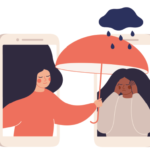WASHINGTON, D.C.—Sandra Mintz, RN, MS, a retired nurse navigator with Children’s Hospital Los Angeles, once cared for a girl with lupus, who was diagnosed at age 10. The patient’s mother recalled the time, shortly after her daughter’s diagnosis, when she was trying to define her role in the girl’s care.
“I found myself wanting to be able to help and do more than just giving her medicine,” the woman said in a message played at ACR Convergence 2024. She had grown up using natural medicines and was hoping to help her daughter’s symptoms by offering her fruits and vegetables, and she told her doctor about her wishes.
“He listened and asked me to give him examples of what I was thinking to use,” the mother said. “I was very surprised that he did not reject my idea.” The doctor gave her some guidance and welcomed her participation. That helped get the doctor-family relationship off to a good start, the woman recalled.
Ms. Mintz discussed the interaction in her ARP Keynote lecture on the importance of empathy and trust-building between doctors and their rheumatology patients—factors that are often overlooked but that can have important reverberations through a patient’s medical experience and quality of life.
The Human Experience 2030 report from The Beryl Institute, a community of medical professionals and patient advisors for improving the experience of healthcare, outlined three main components in its vision for improving this dynamic, Ms. Mintz said. Three main transformations, the report noted, need to take place: 1) Moving from consumerism to a patient partnership between patients and providers; 2) using real-time data and analytics to deliver tailored, personalized care; and 3) addressing systemic challenges, such as workforce stress and community health, to make the healthcare system more resilient.1
Fostering Empathy
A cornerstone in these transformations is boosting empathy in healthcare, Ms. Mintz said.
“Empathy in healthcare goes beyond addressing physical symptoms—it’s about connecting with our patients’ emotional and psychological experiences,” she said. “When providers, caregivers and support staff practice empathy, it builds trust. It strengthens relationships and improves our health outcomes.”
The reason is simple, she suggested. When patients feel like they’re being heard and understood, they’re more likely to share what they’re feeling in the way of symptoms and other concerns, and this helps with improving diagnoses and the care that’s provided.2
When Ms. Mintz asked the audience what their biggest hurdle is in weaving empathy through their care, time constraints topped the list among the five choices. But she said many factors mattered. Making sure patient expectations are in line with realistic outcomes is difficult without empathy and good communication. Giving emotional support while staying professionally detached is “a delicate balance,” she said. And overcoming differences in cultural understanding is essential as well, she noted.
Clinicians can foster empathy, Ms. Mintz said, through communication by acknowledging the emotional as well as the physical toll of an illness. Emotional support can be improved by training team members to recognize the signs of emotional distress. And follow-ups and check-ins can be helpful to assess patients’ stress and coping mechanisms.
Empathy in research is an area that also has room for improvement, Ms. Mintz said. Ways to do this include incorporating patients and study participants into the research design process, training researchers in empathy and keeping participants informed through the research process.
Ms. Mintz said that artificial intelligence can be helpful in providing care with empathy—potentially by helping generate responses to patients—but the human touch and oversight are still required.
“Integrating empathy into healthcare requires a balance of innovative training and responsible use of technology to improve patient-provider relations in care outcomes,” she said. “It’s not going to replace everybody.”
Interprofessional Collaboration
Interprofessional collaboration is also an important part of improving the patient experience, Ms. Mintz said. It helps shared decision making, breaks down silos in medical care and contributes to continuity of care.
Partnering with physical and occupational therapists can help patients more easily address difficulties with mobility and pain management. Collaborating with primary care providers can help ensure lab results and medication updates are communicated promptly. And working with psychologists, counselors and social workers can help make sure patients get the mental health support they need, Ms. Mintz said.
Change on a systemic level is also something providers should take seriously, she said, by promoting policies for equitable care, helping patients be heard, addressing social determinants of health and empowering patients with the knowledge they need.
“Patients with strong health literacy can better understand the medical information, communicate more effectively and make informed choices about their care,” Ms. Mintz stated.
She shared a message from her young patient with lupus, who is now 30, recalling how her providers helped her feel in control. After other providers had downplayed her symptoms—even saying she was lazy or faking it—her care team at the Children’s Hospital Los Angeles didn’t dismiss her. And this had a lasting effect, the patient said.
“They always emphasized that if I felt something off, or something was wrong, to stand up and say something,” the woman said. “That’s definitely something I’ve carried on as an adult today. Building trust with your patients is 100% key to building that foundation.”
Thomas Collins is a freelance medical writer based in Florida.
References
- Wolf J. Human experience 2030: A vision for the future of healthcare. The Beryl Institute. 2020.
- Derksen F, Bensing J, Lagro-Janssen A. Effectiveness of empathy in general practice: A systematic review. Br J Gen Pract, 2013 Jan;63(606):e76–e84.




